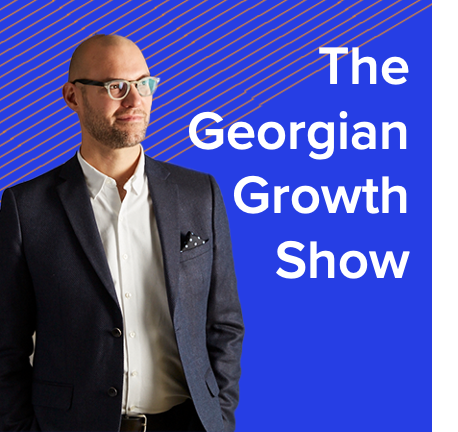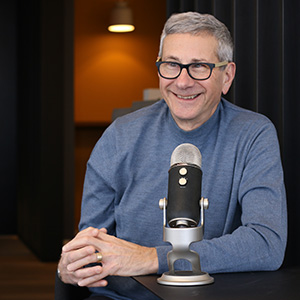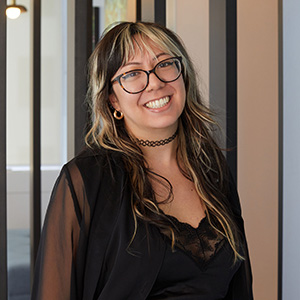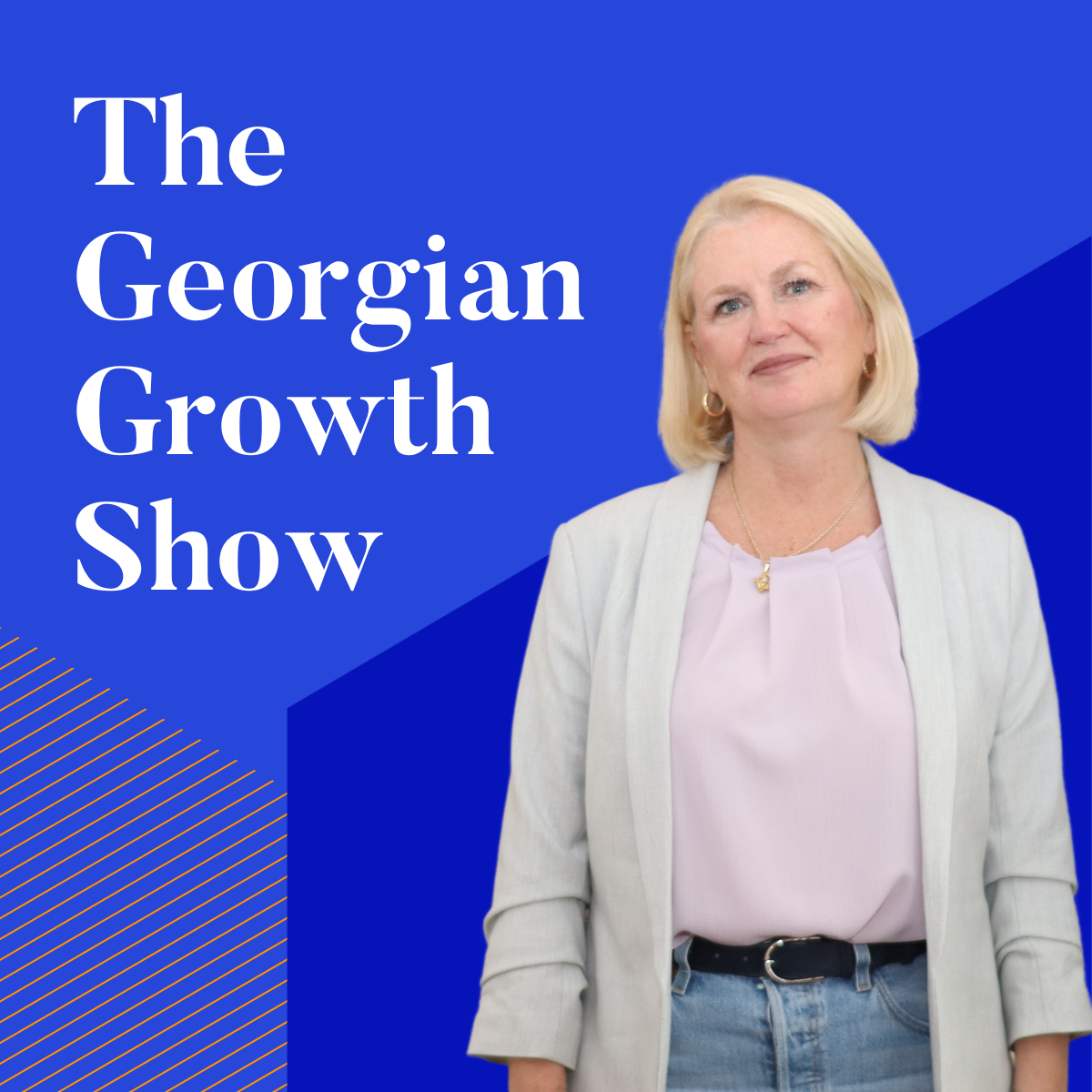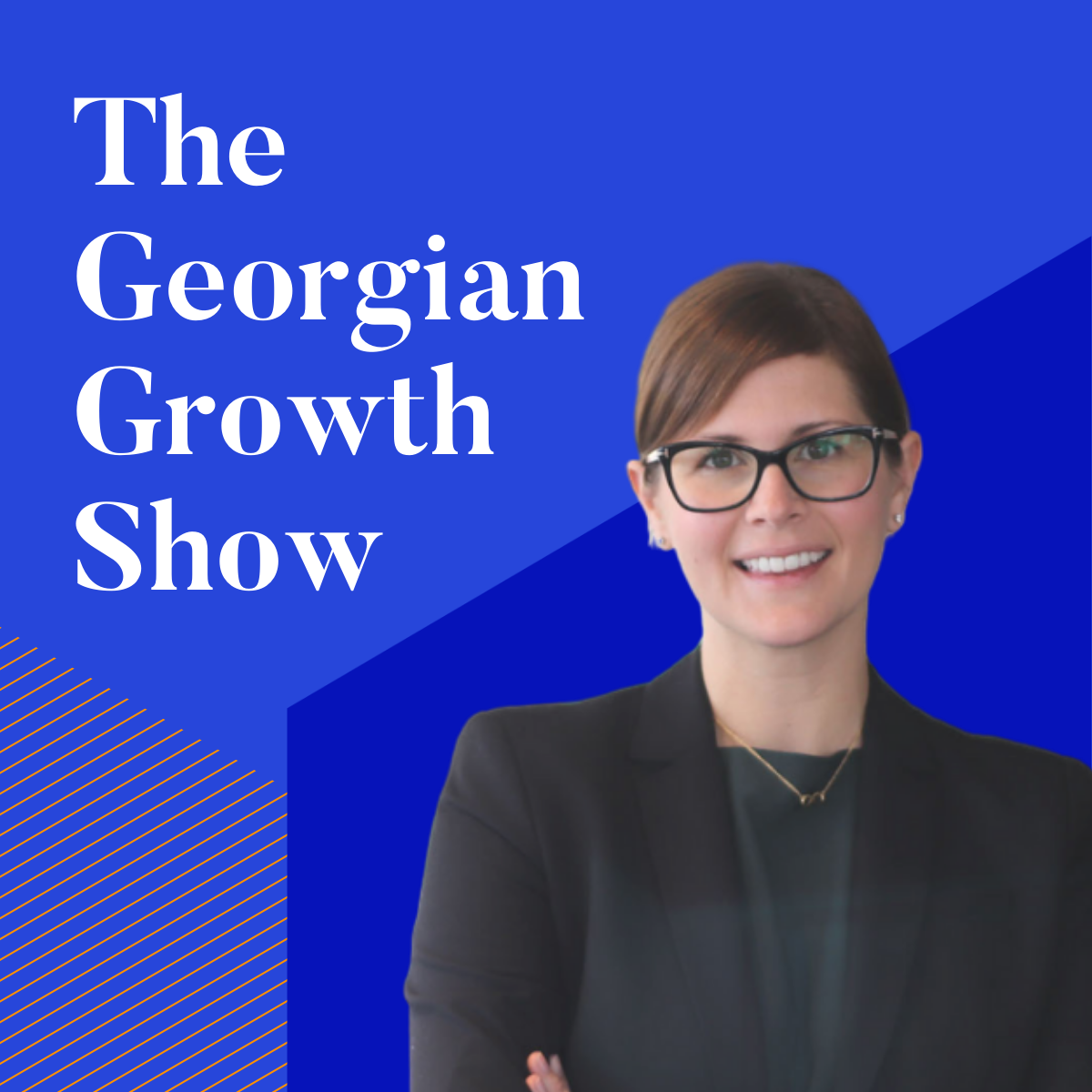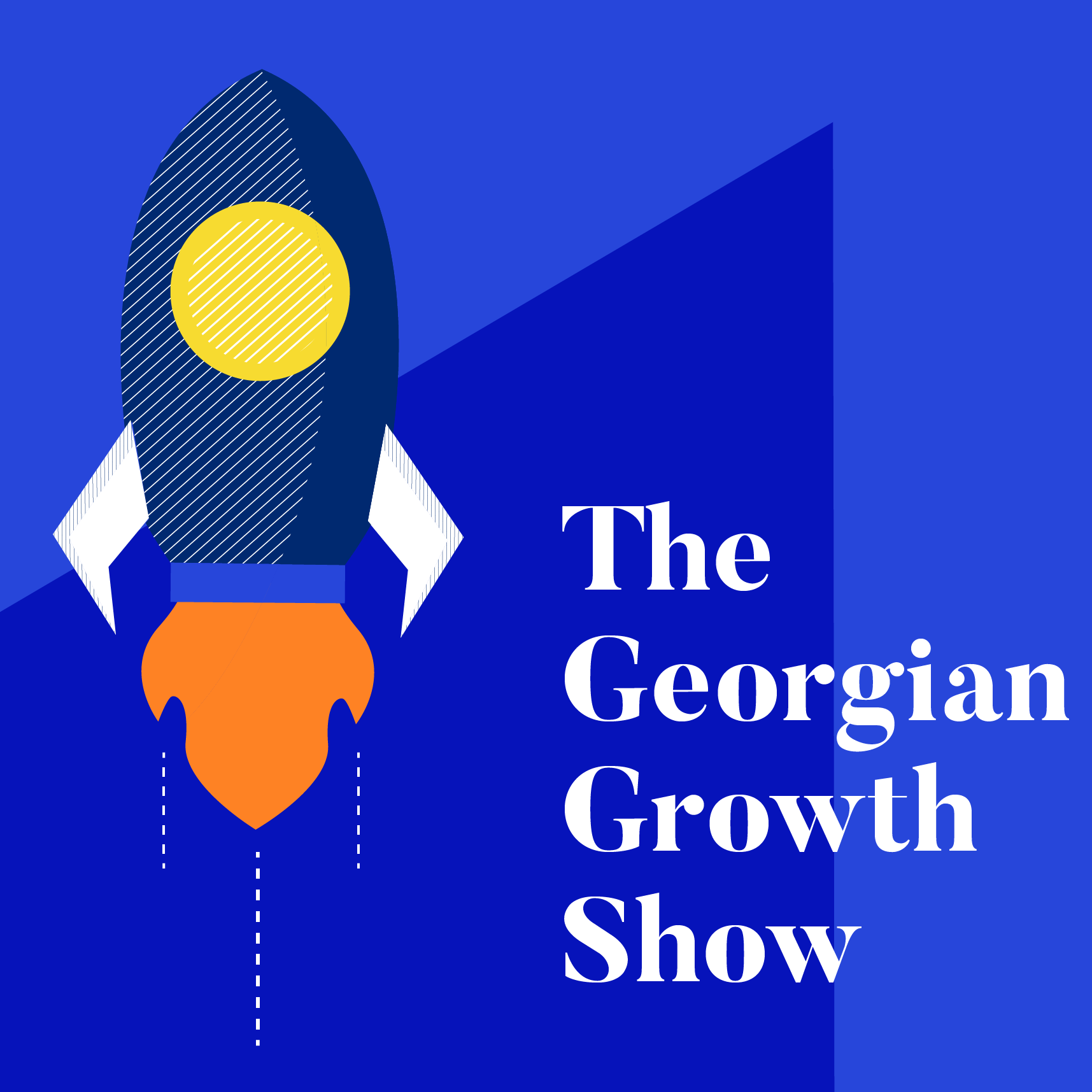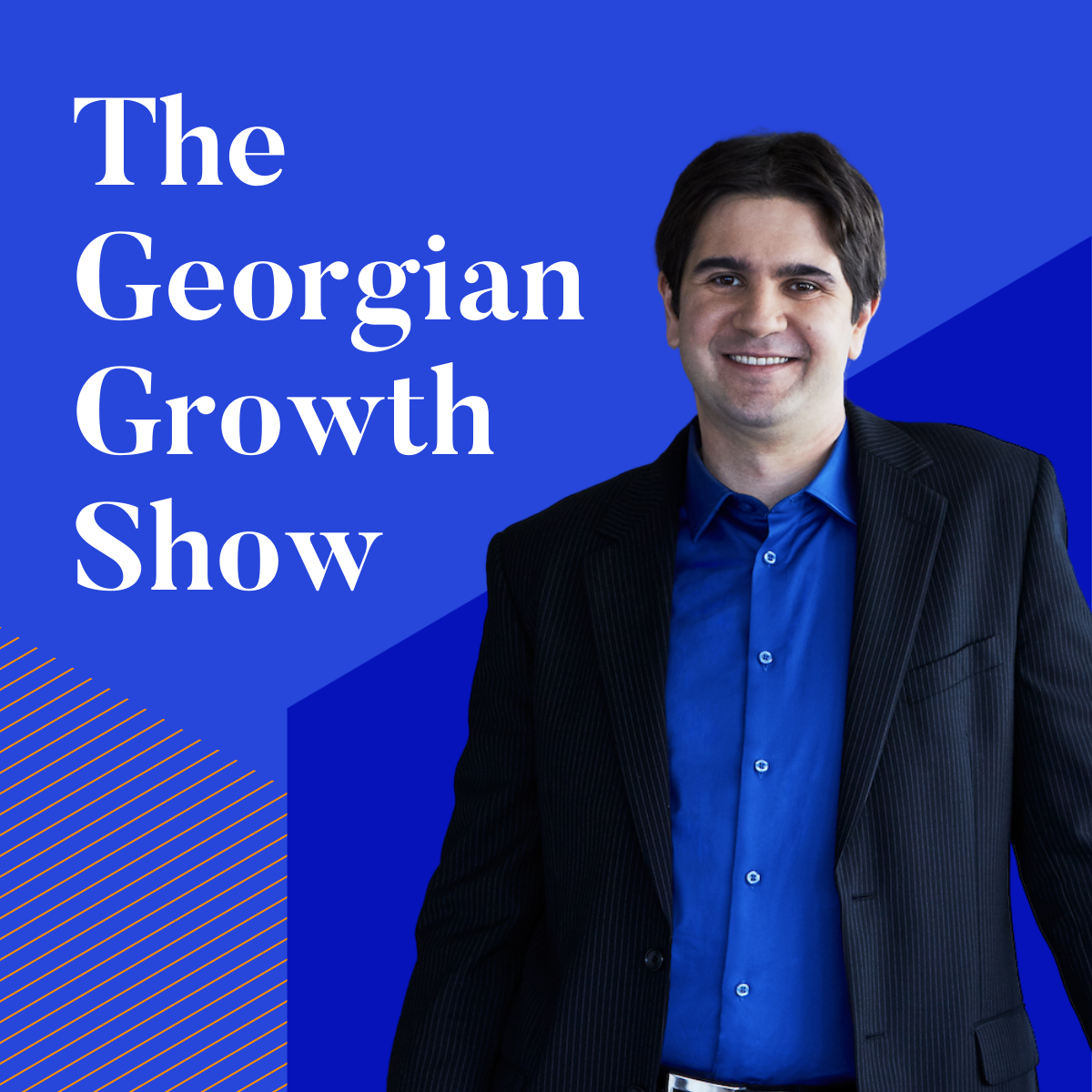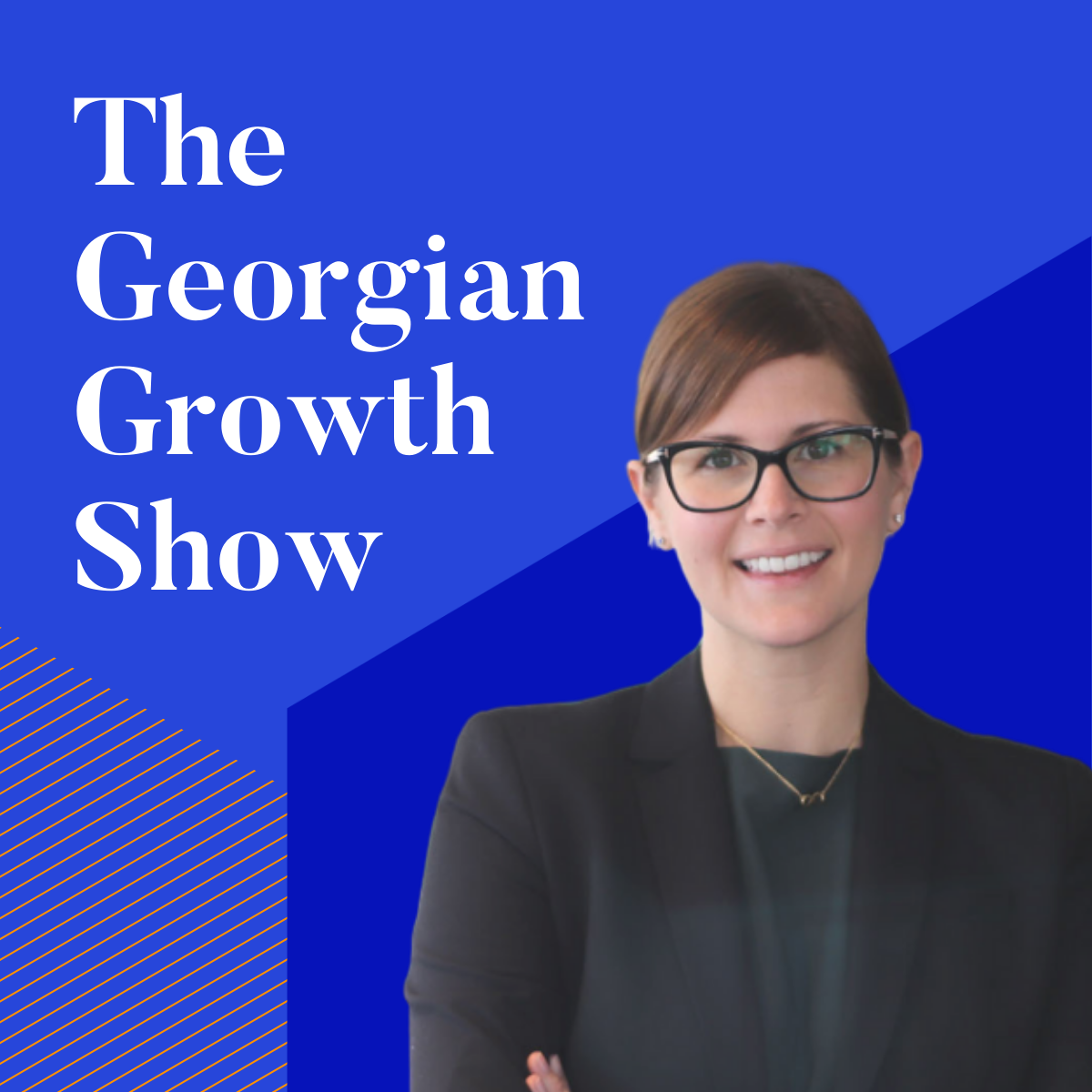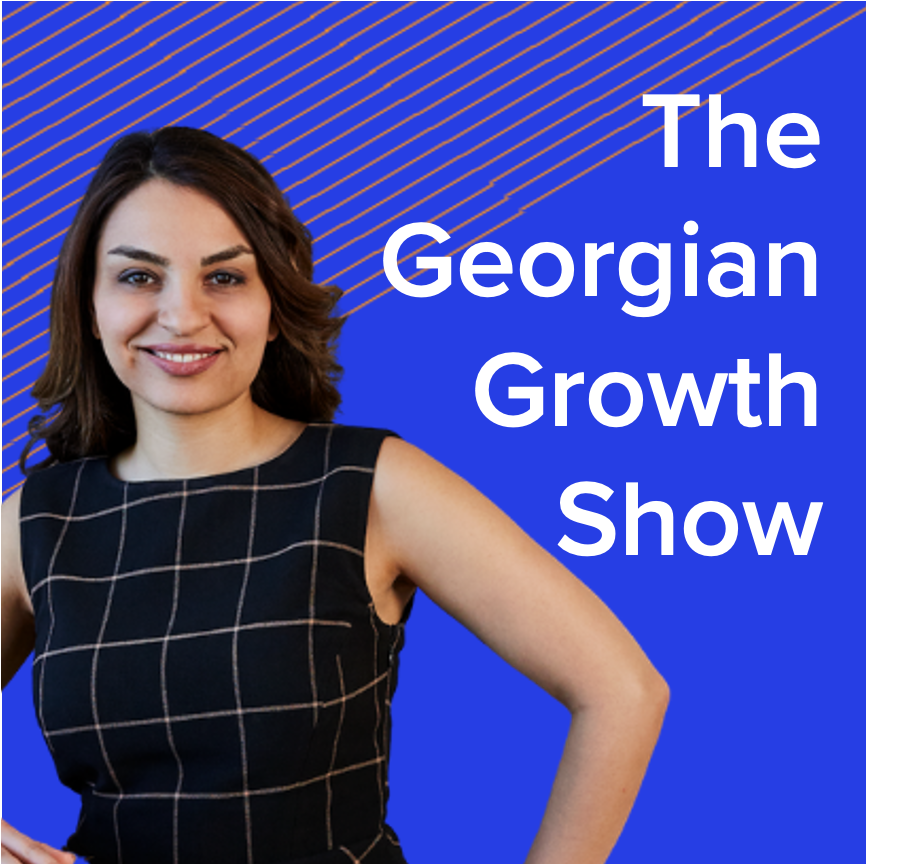Georgian's Jason Brenier on Our Thesis Strategy and How it Benefits Our Companies
- 0.5
- 1
- 1.25
- 1.5
- 1.75
- 2
Hi everyone. Welcome to another episode of GP top three. My name is David pool. And today I'm joined by Jason Grenier who's our VP of strategy and this is developing apps Georgian to discuss what it means to be thesis driven. So we'll talk about how we think about taking a thesis driven approach George and what that means to us how this flow from some of our cultural values that we hold near and dear to us and we'll go into an example of how this is played out to try and bring it to life.
Welcome Jason and thanks so much for joining me. Why don't you start by introducing yourselves you the listeners? Thanks for having me David. I'm Jason Elite Innovation strategy here. Georgian and have a number of responsibilities. But one of the more exciting responsibilities that I have is defining our investment be seats. And I think that's all going to be talking about primarily to Thursday. Yes, sir. I have to say when I was working in in software. I'd often see the different species would come out with these pieces papers and things myself, you know, they could just like a technology like a guy or a business model to me. Could you maybe tell me a little bit more about what if Jesus is specifically and how we Define that at Georgia you think about our investment Theses in in terms of emerging Technologies are emerging technology Trends. So many ways. It's kind of a horizontal technology that can apply to log
A number of different markets are or verticals and usually these Trends are at least the adoption of those Technologies of Technology Trends is driven by societal Trends and in some cases external economic factors and just as an example for for Georgian currently our primary choice. These are on applied AI machine learning conversational Ai and natural language processing and trust a security privacy fairness off transparency and the technologies that would enable companies to build trust with their customers and within their ecosystem.
That's fantastic. What's what's an example of how the technology has gone from kind of emerging and widely adopted and then almost table Stakes.
Yeah, well cloud computing is probably one of the more obvious examples that we've seen historically that actually caused a lot of or lead to a lot of opportunities in the software ecosystem. You have kind of the Confluence of data and insights and analytics and and a I being able to really drive back for her businesses. There was as a as a result of kind of the technology behind cloud computing there was a need for new business models of fast business model and this Altima has really led to Opportunities around as well because of the consolidation of data combined with all of the developments around machine learning. So that's one that for probably all familiar with acutely aware of and the current times that we live in as we all are using, you know, probably a dozen different cloud-based Technologies every single day all day long.
You and I have often gone back and forth in the past talking about how the need for companies to stay ahead of these Trends if anything accelerating things are moving faster and faster, but there's more technology than ever to keep an eye on. So what if the advice that you would typically give to Startup Founders about how to make sense of all these different emerging Technologies and now does George and specifically provide services to our companies to help them adopt some of these Technologies. Yeah. We we believe Japanese that can identify all of these technology Trends before others and put them to use become kind of leaders in their adoption. Really they're they're more likely to walk in and their particular markets. So that's a really important concept because we believe that that makes better companies the companies that we would be more willing to invest in or dead.
Believe in but we also apply this kind of to ourselves and are constantly trying to reinvent ourselves and disrupt ourselves and apply things like machine learning to our internal processes. Just as an example. We have a system internally that will score and rank potential Investments. So we we try to adopt these things to the best of our ability as well. That's also important for companies in our portfolio that already you know, part of the Georgian family. If you will we have an impact team and opt acceleration team it really there to help with the absorption of those Technologies and to help build differentiation around those Technologies in the products that they offer and in in some cases also helping them kind of design to go to mark it would align with the introduction of those Technologies. That's a really important point. We believe that in general the world is increasingly connected and calm down.
Again, we've seen some of the results of that in recent weeks and and so figuring out what the impact of the new technology might be on a product on your customers on the entire ecosystem that you're that you're part of is is a difficult thing to do is a difficult thing to understand but if you can it definitely gives you an advantage relative to others and things are moving more more quickly to your your point David, you know, there's a lot of different reasons why that's happening but you can see some evidence of that from home machine learning side of things things like Ottawa Mill which will help to build machine learning models and optimize machine learning models and essentially help these models self learn and cell phone not approve overtime kind of you know, in a sense cutting the humans out of the loop that's giving us a lot of velocity that we didn't have. Otherwise. It gives us better performing models. That gives us the ability.
To iterate and improve more quickly. A lot of the Technologies also have actually given us better performance than humans in some cases though. And in the realm of NLP speech recognition, we have speech recognition and question-answering systems Etc Watson that the one Jeopardy on these things are just advancing well beyond what we even imagined or predicted a short short while ago about that. So kind of just sum it up we think of a thesis as a way of looking at a specific knowledge e or technology trends that is changing the way that all companies do business and we use the research that we do into these emerging technology areas to help us both internally with our own culture of innovation and to help all of the companies that we invest in to adopt and stay ahead of the curve and I think
That's kind of sums up what we mean by a thesis, but hold on though because we also say with this is driven that we're referring to one of our cultural values which is decent wage in so I kind of feed into use of hypotheses and testing them and constantly kind of assessing different thesis areas, but maybe you could talk a little about some of our cultural values and how they kind of feed into why we take this thesis approach. Absolutely in many ways. It's the driving force behind the thesis identification process the Investments that we make the ecosystem that we built around ourselves and how we help our companies. So yes being thesis driven being tracked down being inquisitive and strategic and deliberate basically formulating hypotheses about everything not just about a company and its position in the market but dead.
About what we do and how we do it. That's really a dark or then testing those hypotheses with data whenever we can and really it kind of running the scientific method wage at every step in the process and everything. We do really probably the most critical value that we have at Georgian and factors into almost everything that kind of money is related to a second value that we have which is around the long-term view can't really have a culture of innovation. If you don't have this longer-term view because you need to run experiments sometimes multiple experiments in in parallel, you have to have multiple hypotheses and test them and draw conclusions. We try to create a culture that allows for failure that allows former chairman Tatian knowing that in the long-term, we will make a scientific discovery knowing that we will improve for the model knowing that we will be able to identify a rep.
Market or zero in on the winning characteristics of companies within a vertical understanding that and also being willing to take a big risk and walk outside of the box and do things completely differently again ourselves, but also helping our companies think in that same way and maybe the risk some of those experiments that are perhaps companies would do by leveraging our impact team by doing an advisory engagement doing a workshop or joining together joining forces and doing a hack of time that all leads to confirm the third cultural value. I wanted to talk about which is really respect for the entrepreneur. We see the entrepreneur as the ultimate experimenter, right? The person is on the front line that is doing the hard and valuable fieldwork taking on more risk than any of us. So there's a lot to be learned from from that and definitely demands respect wage.
And definitely deserving of the value-add services and products that we can provide for the kind of smooth the journey and increase the probability of success though try to be more customer-focused and from the Georgian view the entrepreneur is our customer. Yes. Yes good enough said about a I think one thing that comes out of that page out for me is how strongly the the culture of innovation and testing just kind of nits everything that we do together. One of the things that you may be done a luxury of if you're not taking a long-term View and not kind of constantly innovating and trying new things is in building a wider ecosystem and developing relationships with different organizations who have different skill sets to bring who might not necessarily be a productive relationship in the short-term or might be but yep.
A long-term view allows you and your team especially to get to these bigger challenges in these larger and deeper thought processes than you would otherwise maybe if you could bring this to life with an example of how that's gone for for you with one of our thesis areas.
Yes, so I didn't mention it at the beginning but I'm a computational linguist by training and so spent most of my career building speech and language processing systems and applying a human in the loop machine learning. So I'll use that one as our conversational AI thesis as as an example that's near and dear to me. So yeah, we have this thesis that in Life original form was focused on on messaging in the adoption of messaging as a channel for customers the addition of automation to messaging a revolting and chatbots and automation of some aspects of of the conversations that you have with users. If the real value being being able to communicate with those customers in a personalized manner had scale kind of developing that thesis over the years. We really understood that the applications of some of the technology the models the machine wage.
Miles behind it was broader. So seeing opportunities to apply natural language understanding speech processing speech recognition, etcetera to language more generally was quite interesting and so in some sense the scope of that pieces naturally expanded some of the drivers that we saw behind that thesis were some advancements in ink machine learning and deep-learning algorithms representation learning in particular that allowed us to beat some of the performance standards that we had seen historically may enable a lot of things including really really natural sounding speech from Siri dialogue management and dialogue processing that you get through your conversation with Alexa and just better understanding of text more. Generally. That was one he kind of technical ingredient that went into that basis at the same time. We saw a mass of the increase in wage
Volume of digitized language data both text and speech we saw a cloud-based machine learning offerings and centralized data processing that would allow you to make sense of that data and extract value of it from it and really build more compelling experiences for users that were, you know, based on language. Then as I mentioned before this have a personal move to mobile that gave rise to the desire for on-the-go communication, but that was kind of the original version of our our thesis or focus of our thesis, but you know, what we're seeing these days is the proliferation if you will of the channels or modalities for communication and interaction, so you have things like a RV are you have faith interfaces even have some brain interfaces again? We've disrupted our own thesis in our own thinking around that space and art in the process now of widening the scope and a dog
Really really excited about an investment that we made recently in a virtual reality-based coaching application platform called stryver. We're not only did she have the kind of the visual interaction as an important part of the of the experience that they deliver to Warehouse employees and other types of employees, but there's also that page which component so it calls for some of those earlier technologies that I mentioned. They're really understand the dialogue and assess the quality and effectiveness of communication that's home in that virtual environment. That's kind of been the evolution of that thesis along the way tell me in 30 seconds or less what the NLP Center of Excellence off and why we're excited about that the interesting thing about our conversational AI thesis and some of the technology behind it. Is that almost every company out there especially off.
SAS company has some form of unstructured data either text or transcribed audio. And so we just saw a lot of need across almost every company in the portfolio for making use of that text that we saw a lot of one-off independent experiments that were being run at some cost to each of the companies. So you just getting everybody together and creating a way to share that knowledge how to get started which you know machine learning packages are most effective. We've even begun sharing some data sets and some off creating a model Union if if you will kind of generic models that would bring value to a large number of our our portfolio companies are impact team is actually spending a lot of time doing some original research some of which we publish recently and we're really looking forward to applying that into the portfolio and within the the greater ecosystem and hopefully give more competition
Some differentiation in in the area of conversationally. I so cool. Just bringing together all of those different threads to create something that it's going to be much more valuable everybody who contributes that's really Fantastic Beasts is driven thinking so Jason. Thank you so much for joining me today. That was the GP top three with Jason Bray near where we covered all thesis driven Jason. Thanks so much for joining. It's David makes everybody.
DESCRIPTION
In this episode of the Georgian Growth Show, Jason Brenier joins David Poole to explain what we mean when we say we're thesis-driven and why that is of benefit to our CEOs. Jason answers these three questions:
- How do we think about taking a thesis-driven approach at Georgian and what does it mean for our companies?
- How does this flow from our cultural values?
- What's an example of how this has played out?
